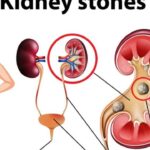This is an important issue that many men focus on with lots of concern, especially if they have a history of this type of cancer in their family. In this blog post, we will explain more on the question: Is prostate cancer hereditary?
Studies concerning the genetic predisposition for prostate cancer, together with gene mutations inherited from a patient’s family, will also be discussed in this article.
In addition, we will examine the impact of family history, and the probability of a man getting prostate cancer, as well as the importance of regular checkups, and early diagnosis.
What is hereditary prostate cancer?
Hereditary prostate cancer is a type of cancer that can pass through generations in a family. This is due to inherited gene mutations that predispose people to prostate cancer, especially men. These mutations can be inherited from one generation to another, and this increases the risk of developing a prostate cancer.
Role of genetics in prostate cancer
Genetics is an important factor in prostate cancer. Some inherited genes can cause a man to be more prone to prostate cancer. The two genes, BRCA1 and BRCA2, are famous for their connection with breast and ovarian cancer; however, there is ample evidence that points to the probability of prostate cancer as well.
Research shows that men with these mutations are at a high risk of developing aggressive forms of the disease early in life. While, men with the BRCA2 gene mutation are at up to 7 times increased risk of the disease.
Certain risk factors, like genetic mutations put a man at a higher risk of getting a prostate cancer, and this can be detected through testing. From this information, it helps to start screening and treatment once the person notices any of the early signs of prostate cancer.
Is Prostate Cancer Hereditary?
Prostate cancer can be hereditary, but it is not entirely caused by genetics. Unfortunately, if you have a family history of the disease, there are possibilities of you having prostate cancer much later. Apart from this, age, diet, and lifestyle choices can also contribute to prostate cancer. So, yes, there is a genetic component to prostate cancer, but it is not the only factor to consider.
In addition, genetics may influence how some men react to particular therapies. For example, some men may have certain genetic markers that mean that they will be more or less likely to suffer from the side effects.
Signs That Prostate Cancer Could Be Hereditary
Certain signs that may suggest a hereditary link to the disease are:
1. Family history
The largest risk factor with hereditary prostate cancer is family history. If multiple close relatives, such as a father, brother, or son, have been diagnosed with prostate cancer, it could suggest a hereditary predisposition and the presence of prostate cancer.
2. Age
Prostate cancer particularly affects older men; however, if a man is diagnosed at 55 years and below, the cancer is likely to be hereditary.
- Aggressive disease
Hereditary prostate cancer is worse than non-hereditary prostate cancer. However, if a man is diagnosed with an advanced or high-grade tumor, it may be due to some genetic components.
- Multiple cancers
People with a hereditary type of prostate cancer may carry an increased risk of another malignant neoplasm, including breast or ovarian cancer, in their relatives.
Genetic predisposition vs. lifestyle choice in prostate cancer
Both heredity and lifestyle factors can cause prostate cancer. Research suggests that some inherited traits can raise the probability of getting prostate cancer, but lifestyle factors can also influence it.
1. Genetics
Some inherited genetic changes are likely to occur in a man, which leads to prostate cancer. Inherited from one generation to another, the disease often affects those who have close relatives who suffered from the disease too. Men who also have a family history of the disease should ensure they take necessary precautions as regards screening for the disease.
2. Lifestyle factors
A person’s lifestyle may either increase or decrease susceptibility to prostate cancer. Red meat and dairy products are among the causes of the disease, for instance. Taking physical exercise daily and refraining from the use of tobacco can go a long way to decreasing the chances of getting prostate cancer.
3. Combined impact
It is important to note that even though there may be a hereditary prostate cancer, non-hereditary factors may enhance or lessen such risks. A healthy diet and regular exercise can change a man’s life for the better and could also lower his odds of getting prostate cancer.
4. Screening and prevention
Genetic or no genetic factors, early detection of prostate cancer is recommendable, especially in targeted groups of people. In this regard, other measures like eating healthy diets, and exercise among other measures can help prevent prostate cancer in men.
What to Do If You’re at Risk?
If you have a family history of prostate cancer, there are steps you can take to manage your risk. They include the following:
1. Get Regular Screenings
This has indicated that screening is very relevant for early detection. Doctors often use the following tests:
- PSA Test: Calculates the quantity of a substance called prostate-specific antigen in your bloodstream.
- Digital Rectal Exam (DRE): Screen for deviation from the norm in the prostate gland.
- Adopt a Healthy Lifestyle
Although you cannot control your genetics, you can take steps to reduce your risk.
- Eat a Balanced Diet: Consumption of fruits and vegetables, whole grain products, and lean meats.
- Stay Active: Do exercises or have a regime to reduce the chances of attaining a high BMI.
- Avoid Smoking: Smoking raises the chances of developing an aggressive form of prostate cancer.
- Limit alcohol: You cannot drink alcohol often, but moderate drinking can decrease your chances.
- Discuss Preventive Measures
Some of the men with a high genetic risk may opt to take preventive measures such as taking drugs or enhanced monitoring. Consult your physician regarding your choices.
What causes prostate cancer?
1. Genetics
Certain genetic qualities that may have been passed down from one generation to another may make a man predisposed to prostate cancer. Some of these may be inherited from their parents, and it may make them prone to the disease.
2. Age
Prostate cancer is a disease, most often in men of advanced age, and its incidence grows with age. This type of cancer is prevalent in men who are over fifty years old compared to young men.
3. Diet
It is a high risk for a man to develop prostate cancer when he eats red meat and unhealthy fats in high proportion. However, a diet containing fruits, vegetables, and whole grains can help with raising such a barrier and decrease the risk.
4. Obesity
Obesity is also a major risk factor when it comes to contracting prostate cancer. For this reason, it is vital that as you get to 40, you monitor your weight through diet and exercise.
5. Smoking
Several studies have also identified smoking as one of the causes of prostate cancer. Men who smoke should endeavor to quit smoking as it reduces this risk and enhances their general health.
Read also: Can Prostate Cancer Spread?
FAQs
1. Is prostate cancer hereditary?
Yes, prostate cancer run in families, so, if a family member is diagnosed of it, there are chances a relative will have it.
2. How do I know if I have a higher risk of developing prostate cancer?
You can know through your family history or genetic testing.
- Should I go for a prostate cancer test if it runs in my family?
It may be a good idea to talk to your healthcare provider if you think it runs in your family. Your doctor will recommend the appropriate measures to take.
- Can lifestyle choices cause one to develop prostate cancer?
A healthy lifestyle such as regular exercise, and eating balanced diet, may help reduce your risk.
- What should I do if I have a family history of prostate cancer?
Speak with your healthcare provider about your risk factors and the best way to monitor your health.
Conclusion
Some people are at a higher risk of developing prostate cancer because of genetics. Research reveals that if a first-degree relative has been diagnosed with this disease, the chances of getting prostate cancer increase.
Genetic testing can help identify specific gene mutations that may increase your risk. However, not all prostate cancers are genetic, and family history is the best predictor.
Even though there is a hereditary factor in the development of prostate cancer, several factors can help prevent it. Learn about the disease, go for check-ups, and tell your doctor about your family history.



